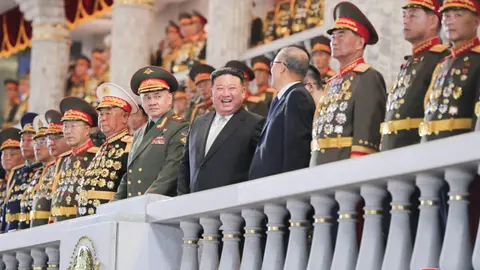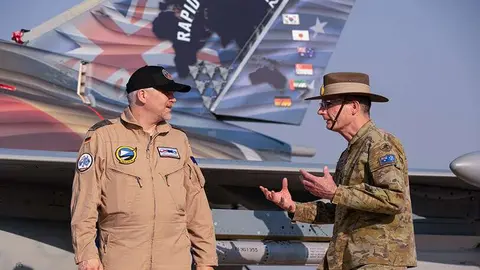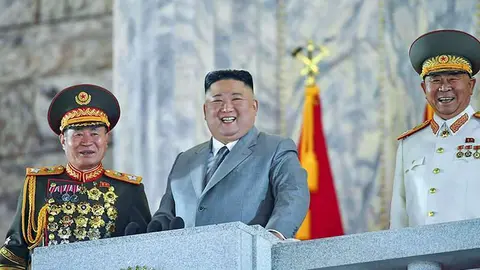Kim Jong-un asks Vladimir Putin for help to send a North Korean to orbit the Earth
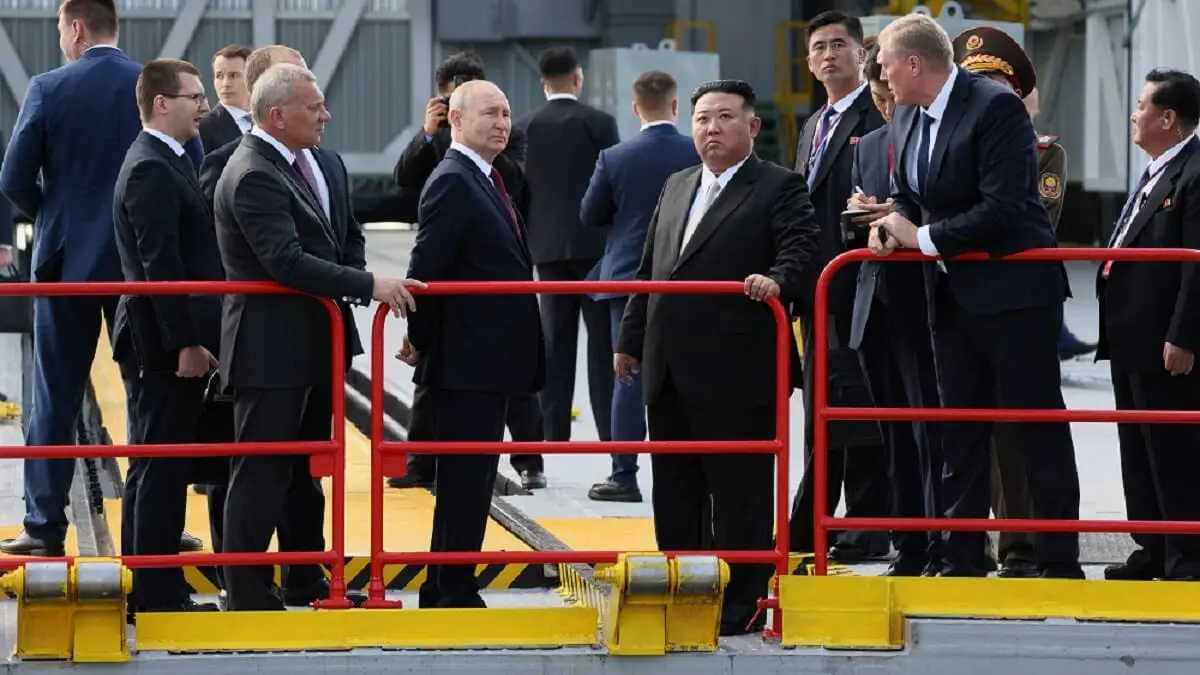
Russian President Vladimir Putin and North Korean leader Kim Jong-un have met at the new Siberian Vostochny Cosmodrome to sign crucial win-win agreements. They have every reason to do so.
Russia urgently needs assurances from North Korea of increased supplies of large quantities of missiles, artillery ammunition of all calibres, weapons systems, combat vehicles and logistical equipment to replenish its losses in the Ukrainian war and strengthen its army's combat capabilities.
Pyongyang needs to consolidate its strategic alliance with Moscow and equip itself with new fighter aircraft and warships, is determined to overcome its recent and repeated failures in putting military satellites into orbit, and seeks to demonstrate to Washington that it is capable of being a new emerging space actor to be reckoned with on the Asian stage. With all of the above, it is confident that it has new trump cards to play with the Biden Administration.
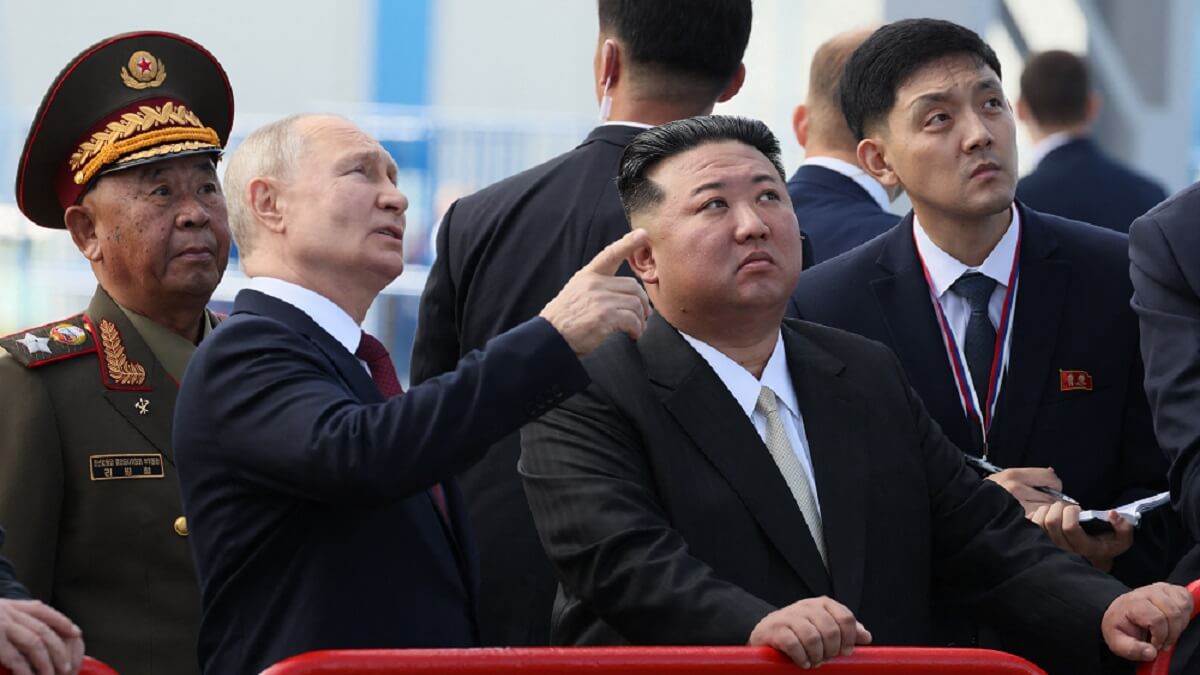
Kim Jong-un has arrived in Russia on an official visit with the firm intention of getting Vladimir Putin to authorise the engineers of his space agency -Roscosmos- to help him make North Korea's deficient launchers, which so far have only given him displeasure, reliable. He also wants Russian technicians to help him develop high-resolution spy satellites.
But above all, the beloved leader's great ambition is to send one of his own citizens into space as soon as possible, to get ahead of South Korea and try to embarrass the government of President Yoon Suk-yeol. This would be Kim Jong-un's way of removing the thorn in his side over the South Korean space probe Danuri, which Seoul's space agency (KARI) has had in orbit around the moon since 16 December 2022.
Orbiting the Earth without access to the ISS
The Russian president's press secretary and spokesman, Dmitry Peskov, confirmed that the Russian delegation and Putin himself emphasised "opportunities for cooperation on space issues" and that "if the Pyongyang government so wishes", Russia is in a position to "train and launch a North Korean cosmonaut into space".
Roscosmos would be in charge of the final selection and training of two North Korean military personnel to become cosmonauts. One of them would be chosen to travel into space and simply orbit the Earth in an autonomous round-trip flight in a manned Soyuz capsule. Of course, accompanied by two Russian cosmonauts and in just over a year's time.
Under no circumstances would the Korean cosmonaut be allowed access to the International Space Station (ISS), which is absolutely vetoed by the United States and Japan. However, it is possible that, with the approval of Chinese President Xi Jinping, the Russian Soyuz capsule could dock at China's Tiangong space station and the first North Korean cosmonaut and the two Russians could spend a few days with the three Chinese cosmonauts who live there.
Pyongyang's interest is also in finalising the development of a new domestically manufactured space launcher and having the capabilities to produce high-resolution military reconnaissance satellites. The so-called National Aerospace Development Administration (KCST) has already tried in May and August 2023 to place a small domestically-built observation platform into orbit, which it unashamedly officially called a spy satellite. On neither occasion did it succeed.
On the second occasion, the spy satellite had been christened Malligyong 1 - telescope, in English - but it failed to reach its intended orbit when a lethal anomaly occurred in the separation of the propulsion stages of the Chollima-1 launcher - winged horse, in English. The wreckage of the rocket and satellite are in the depths of the Yellow Sea but were rescued by the South Korean Navy. The next liftoff is scheduled for next October and KCST is looking forward to the supervision of the experienced Russian engineers.
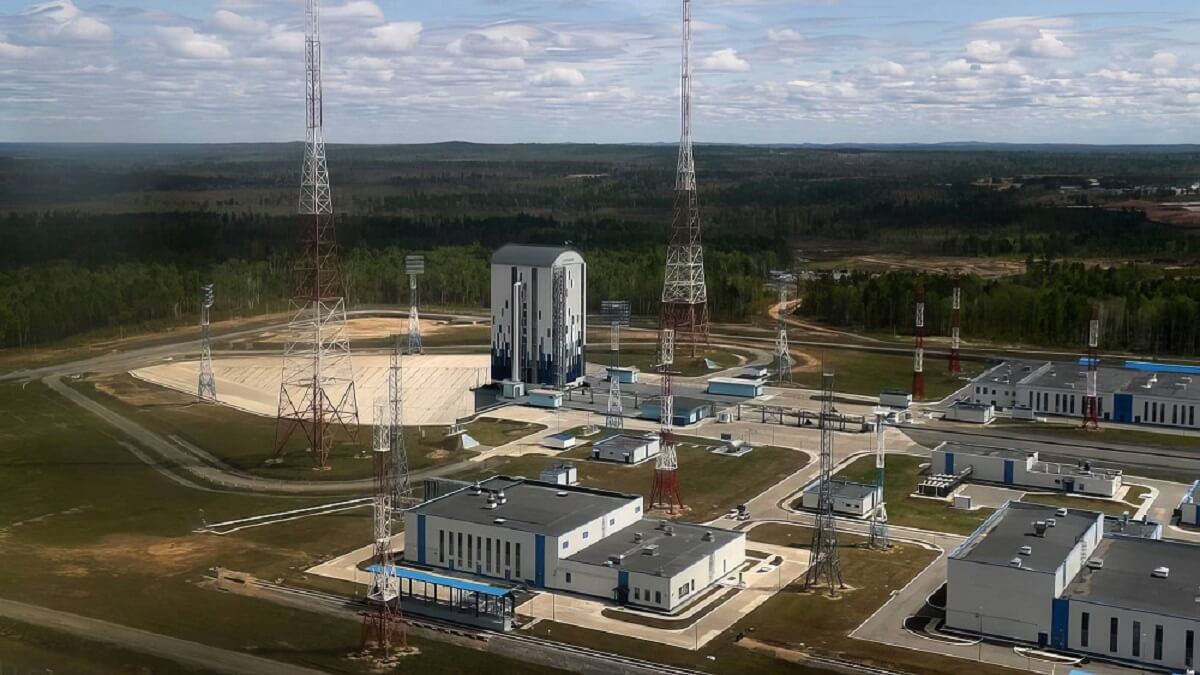
Strong interest in rocket technology
Kim Jong-un's interest in seeing first-hand the main facilities at the new space base in Vostochny - 5,500 kilometres east of Moscow in Russia's Far East - is understandable, the first stop on his official several-day tour of Russia, which began on 13 September and will continue until the end of this week.
Together with Vladimir Putin, the beloved leader was shown the details of the huge building for the integration of the new Angara launchers, its launch ramp and also that of the Soyuz-2 rocket. In a brief meeting with the media, Putin stressed that Kim Jong-un has "a great interest in rocket technology and is trying to develop space exploration capabilities".
The North Korean delegation led by Kim Jong-un is still on an official visit to the main industrial sites in Siberia. After negotiations with Putin in Vostochny, it visited Komsomolsk Amur, a major city in the Far East, where it toured several production plants of the Russian aircraft giant United Aircraft Corporation. There he saw the production process of the Sukhoi Su-35 and Su-57 fighter jets and the assembly line of the Sukhoi Superjet 100 airliner, which has a seating capacity of 100. He is now in Vladivostok to visit its naval shipyards.
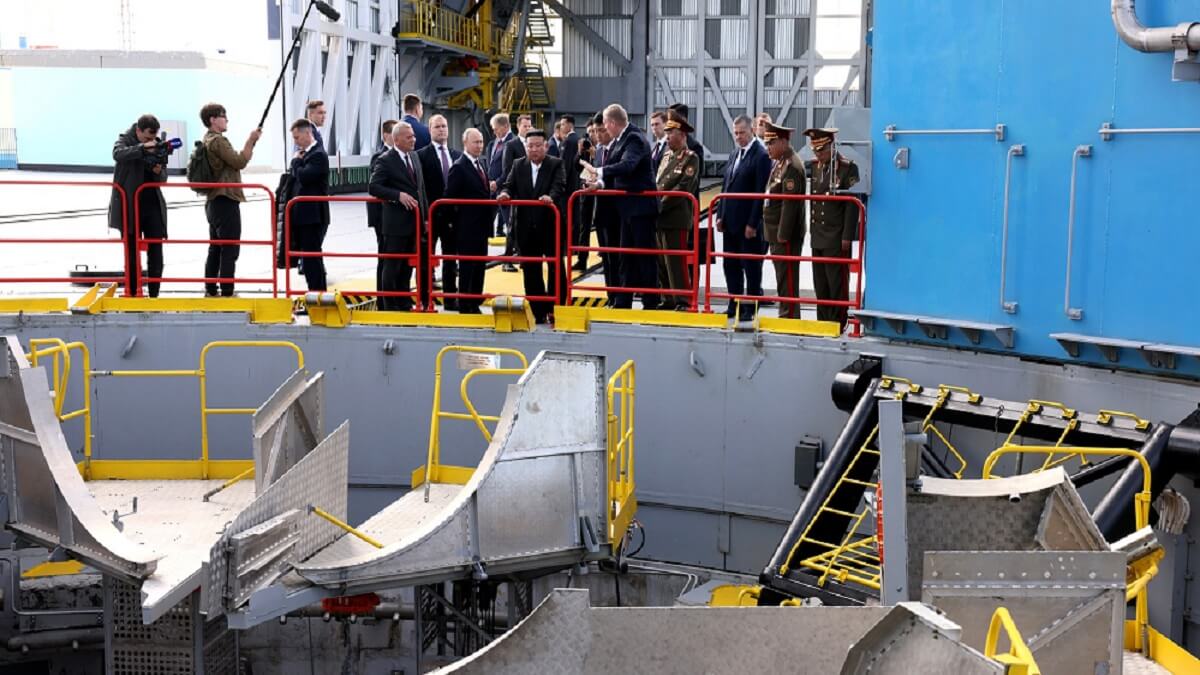
The first summit in four years between the two leaders - which is also taking place in a difficult geostrategic environment for both countries - Putin's reception of his guest has been grand. To give an idea of the importance the Kremlin attached to the visit, President Putin was surrounded by the Foreign, Defence, Transport and Natural Resources ministers, Sergei Lavrov, Sergei Shoigu, Vitali Savelyev and Alexander Kozlov, respectively.
The Russian delegation was rounded out by four deputy prime ministers, including the influential Denis Manturov, the influential minister of industry and foreign trade, Roscosmos director general Yuri Borisov, and the newly appointed director general of the Centre for the Exploitation of Ground-based Space Infrastructures (TsENKI), General Nikolai Nestechuk, a veteran of Russia's military space branch and head of the Vostochny Cosmodrome facility.
Pyongyang has reported that the North Korean delegation led by Kim Jong-un is made up of some fifteen senior officials, but has only announced five of them: Foreign Minister Choe Son Hui; Vice Chairman of the Central Military Commission, People's Army Marshal Pak Jong Chon; Defence Minister General Kang Sun Nam; and the secretaries of the Workers' Party Central Committee, O Su Yong and Pak Thae Song.


